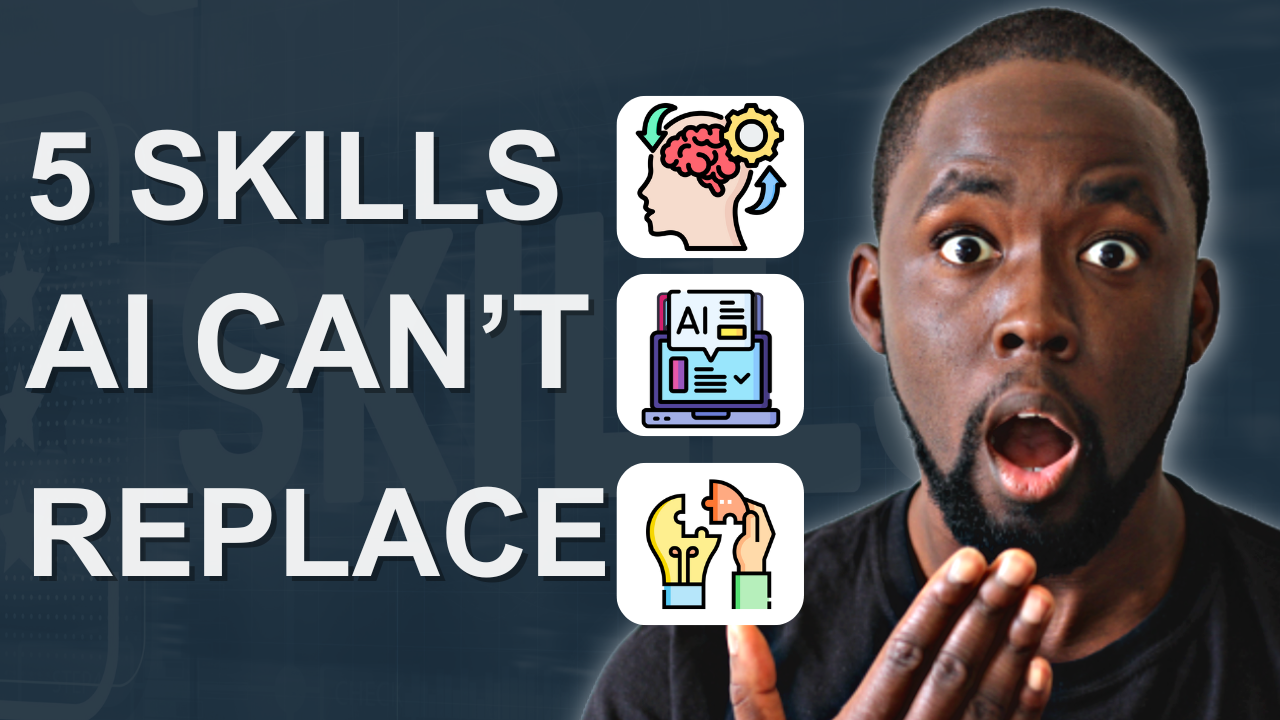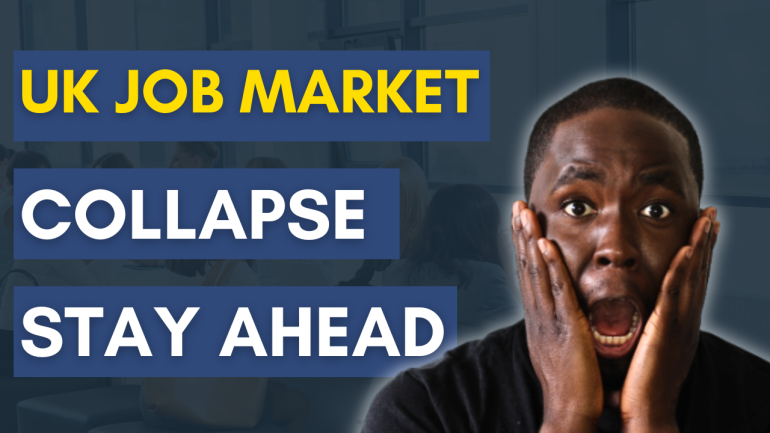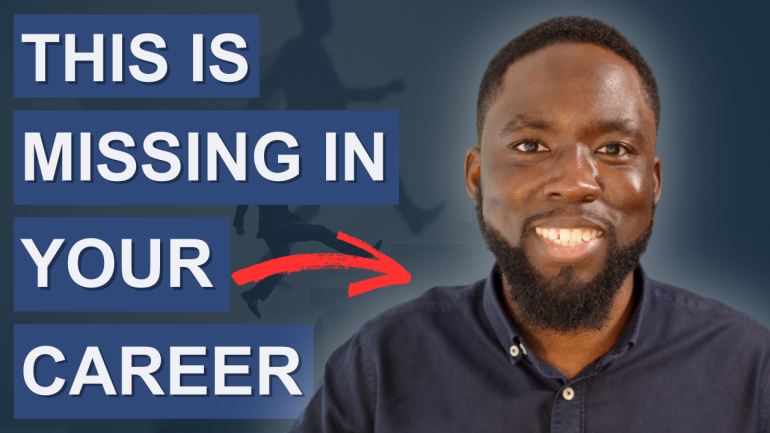5 Human Skills That Will Make You Irreplaceable in the Age of AI
What makes you truly irreplaceable in the age of AI?
That’s a question I’ve been wrestling with myself, not just as a consultant but as a human being trying to navigate change. Like many professionals, I’ve had moments where I’ve wondered: Will my skills still matter in five or ten years? Will my role even exist?
AI is looking like it’s shaking up industries at breakneck speed. Automation is threatening to handle tasks that once kept junior staff busy. Tools like ChatGPT can now draft reports, generate code, and process data in seconds. And yet, I firmly believe we are not in a race against machines; we are in a race to learn how to use them while leaning into the one thing AI cannot replicate: our human edge.
In this article, I’ll share five timeless skills that I’ve seen make the biggest difference for ambitious professionals. These aren’t just theories; they are qualities I’ve had to strengthen myself in consulting, contracting, and leadership. If you can nurture these skills, you’ll not only survive the rise of AI, you’ll thrive.
1. AI and Data Literacy: Collaborating with the Machines
Let’s start with the obvious. You don’t need to become a coder, but you do need to understand how to collaborate with AI and interpret data effectively.
When I first experimented with ChatGPT, I realised it wasn’t about replacing my thinking, it was about speeding up the grunt work so I could focus on strategy. For example, I once pulled in years’ worth of business data from documents and videos and fed it into an AI tool. Within minutes, I had patterns and insights that would have taken me hours to compile. But here’s the key: the tool didn’t provide the meaning. That was my job.
The problem is clear: AI can spit out outputs, but without context, they are meaningless. The action is learning how to provide frameworks, methodologies, and philosophies that shape the narrative. The result? Stakeholders don’t just see numbers; they hear a compelling story they can act on.
So ask yourself: Am I simply consuming AI outputs, or am I interpreting them in ways that drive meaningful decisions?
2. Critical Thinking: Becoming the Strategic Partner
AI can process information, but it cannot strategise like a human. Critical thinking, the ability to frame problems, analyse contexts, and devise solutions, remains one of the most valuable skills you can develop.
When I was managing a complex change programme, I had two options: follow the template blindly or step back and assess the bigger picture. The easy route would have been to churn out deliverables. But by asking better questions, like What’s the real pain point? How does this align with the organisation’s long-term goals? I was able to steer the programme toward outcomes that mattered.
This is where the PAR model shines. Here’s an example to illustrate its use:
- Problem: The organisation faced low stakeholder engagement.
- Action: I reframed the problem, tested multiple hypotheses, and created a communication strategy that wasn’t in the “playbook.”
- Result: Stakeholders became active participants instead of passive recipients, accelerating adoption.
That’s the power of critical thinking. It transforms you from just another contractor into a strategic partner.
3. Emotional Intelligence: Leading Beyond Logic
Sixty to eighty percent of our work isn’t technical; it’s about people.
I learned this lesson early in my career when a project hit turbulence. The data, governance, and processes were all there. But tensions between teams meant progress was stalling. The turning point wasn’t another report; it was taking the time to listen, empathise, and help people feel seen.
Emotional intelligence is about more than reading the room. It is about managing your own triggers, motivating yourself when things get tough, and understanding others well enough to influence effectively. It is also about building trust, because people won’t remember every presentation slide, but they will remember how you made them feel.
Practical ways I’ve sharpened this skill:
- Developing coaching skills by asking powerful questions, not just giving answers
- Practising active listening, sometimes the silence is more powerful than the solution
- Choosing my battles and learning when to speak and when to stay quiet
Want to stand out in the age of AI? Become the consultant who not only delivers but also connects.
4. Adaptability: Thriving in a World of Change
The half-life of skills is shrinking. According to McKinsey, what you know today may be redundant in just five years. That is daunting, but it is also an opportunity.
For me, adaptability has been a survival skill. When contracting markets shifted, I had to diversify my skillset and position myself differently. Instead of panicking, I treated it as continuous professional development (CPD). I built a routine of reviewing my progress weekly (I didn’t always stick to this), reflecting on lessons learned, and scanning the bigger picture from inflation rates to emerging technologies.
Adaptability is both micro and macro. It is learning new qualifications and tools, but also understanding how global shifts like AI, blockchain, and geopolitics impact your industry.
Think of it this way: if AI can move faster than you, the best counter is to stay agile. Review. Reflect. Realign.
5. Creativity: Finding New Pathways Forward
Finally, let’s talk about creativity. AI can generate endless options, but it cannot create meaning out of your lived experience.
When I brainstorm with AI tools, I get ideas, but they often feel flat and vanilla. The missing ingredient? My perspective. My story. My context.
Creativity often comes when I step away from the laptop. Going for a walk, having conversations outside my industry, or even watching my kids play, these moments spark connections I wouldn’t find in a spreadsheet.
Innovation isn’t just about improving the old. It is about saying, “What if we did this differently?” New ways of thinking don’t just get attention; they create opportunities. And in consulting, creativity is what allows you to propose solutions that others can’t see.
Bonus Insight: Use AI as a Leverage Tool, Not a Crutch
One mistake I see often is professionals either fearing AI or over-reliying on it. The sweet spot is leverage. Use it to accelerate, not substitute. Think of AI as a junior analyst; you still need to direct it, critique it, and refine its outputs.
When you master this mindset, you move from being at risk of replacement to being the one who sets the agenda.
Conclusion: Lean Into Your Human Edge
The rise of AI doesn’t spell the end of your career, it signals the start of a new era where the most human skills matter more than ever.
To recap, here are the five skills that will keep you irreplaceable:
- AI and Data Literacy
- Critical Thinking
- Emotional Intelligence
- Adaptability
- Creativity
If you can master these, you won’t just survive AI, you’ll stand out as the professional who knows how to combine human judgment with machine efficiency.
So ask yourself: Which of these skills do I need to double down on today?
Understand. Reach. Expand.
Peace.







